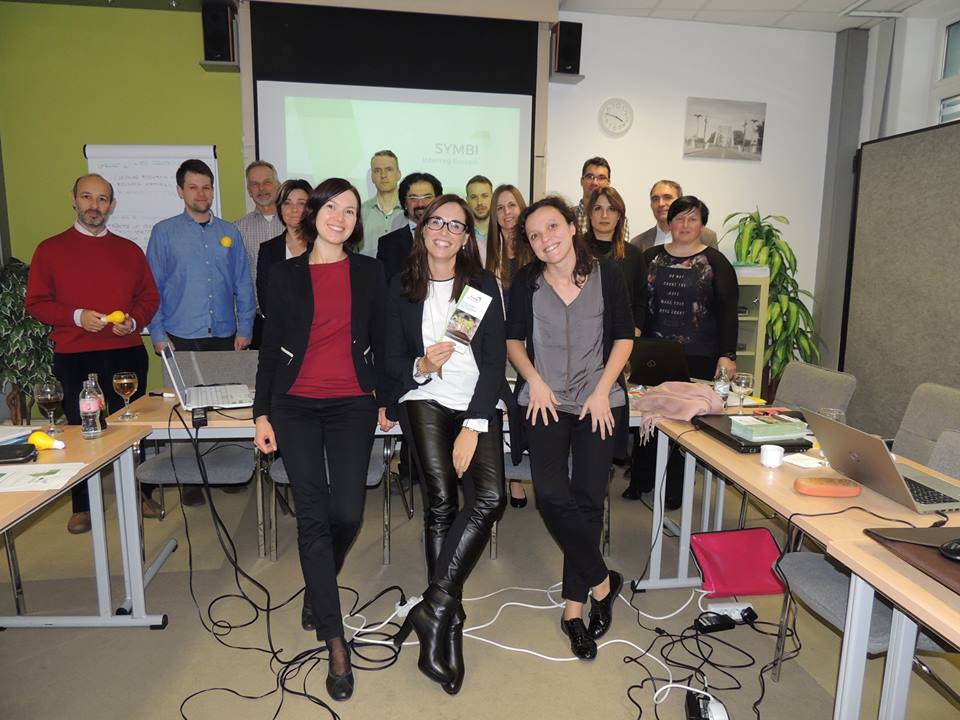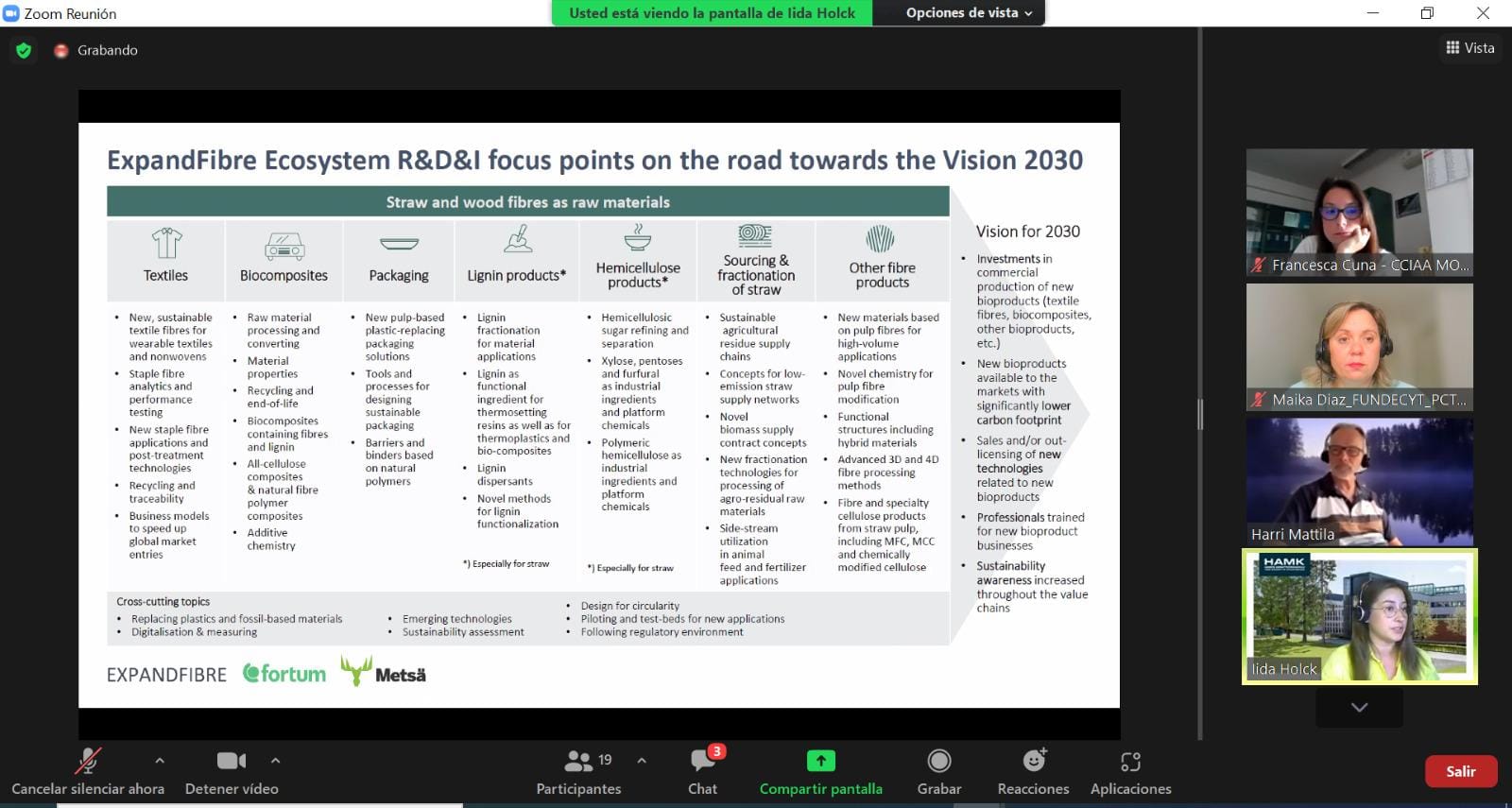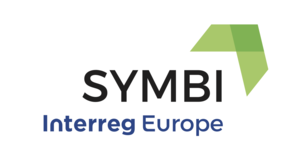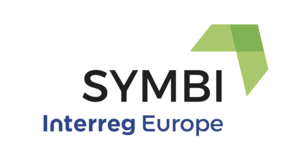Kozani steps toward Circular Economy
During the initial implementation of the SYMBI proje), the Municipality of Kozani (Greece) made its first steps towards Circular Economy.
INDUSTRIAL SYMBIOSIS FOR A RESOURCE EFFICIENT ECONOMY
SYMBI project will contribute to improve the implementation of regional development policies and programmes related to the promotion and dissemination of Industrial Symbiosis and Circular Economy from 7 participating countries faced to policies alignment with the Circular Economy strategy of the European Commission to transform Europe into a more competitive resource-efficient economy.
INDUSTRIAL SYMBIOSIS looks at interactions between the environment, the economy and industry, and promotes the sharing of materials to minimize waste, following the example of a natural ecosystem, where everything is reused.
Industrial symbiosis strengthens regional growth and competitiveness fostering:
PROJECT OBJECTIVES
SYMBI General objective is to empower regions to build sustainable economies, resilient to environmental pressures and climate change.
The project will support the implementation of policy instruments and measures for the diffusion of industrial symbiosis, to add value, reduce production costs and relieve environmental pressures through increased resource efficiency and green house gas emissions.
SYMBI aims at supporting the transition towards a resource-efficient economy through industrial symbiosis, establishing territorial synergies to manage waste and exchange energy & by-products as secondary raw resources
Furthermore, through the development of the activities, SYMBI will get:

€1,868,067.00
Environment and resource efficiency
SYMBI VIDEO - STUDY VISIT IN SLOVENIA
SYMBI VIDEO - INDUSTRIAL SYMBIOSIS IN FORSSA
SYMBI VIDEO - STUDY VISIT IN FINLAND
MAIN CHARACTERISTICS & RELEVANT MEASURES
The Extremadura Regional Operational Programme (ROP) is based on 10 axes; the 6th axis aims to improve resource efficiency, including the management of waste, resources, and by-products, in line with EU policies:
Investment priority 6.1: Investment in the waste sector to meet the requirements of EU's environmental acquis, addressing the needs determined by the Member States, and to go beyond these requirements.
Specific objective 6.1.1: Develop separation, collection, & waste treatment systems, including actions aimed to close the cycle, taking into account both management plans and infrastructure investments.
In this framework, the actions relevant to industrial symbiosis are identified:
-Increase capacities for recycled materials
-Establish networks of selective waste selection
-Introduce 3rd generation waste treatment techniques
-Use waste as energy
-Create Ecoparks for waste transformation
REASONS FOR IMPROVEMENT
The Extremadura Regional Government has identified the following areas for improvement:
-The actions foreseen by the ROP should be implemented in accordance to the forthcoming EC's circular economy strategy (late 2015), especially as concerns new resource efficiency targets
-According to regional stakeholders, more actions are needed to stimulate private sector investments, collaborations, and broad participation in waste transformation technologies and by-products exchange, to further support growth and job creation
MAIN CHARACTERISTICS & RELEVANT MEASURES
The Non Dangerous Wastes Territorial Programme acknowledges that the economic growth and the ephemeral use of resources and products has resulted in a growing trend of environmental degradation and waste generation in Andalusia. Therefore, to achieve sustainable growth, it is explicitly stated that there is a clear need for better resources management, to be achieved through: a) collaboration with local authorities and social partners, and b) new initiatives of the regional administration.
More specifically, the programme calls for the following measures to be implemented, reflected also on the objectives of the SYMBI project:
- Recover materials or energy from waste.
- Promote markets for recycled products.
- Define different treatment technologies per stream waste, considering separation and reusability requirements.
REASONS FOR IMPROVEMENT
The Environment and Territory Regional Ministry of Andalusia has identified the following areas for improvement in the policy instrument:
- The plan needs to be adopted to the forthcoming EC's circular economy strategy (late 2015), to redefine resource reusability, recycling, and overall waste targets
- The plan lacks specific provisions on how to stimulate industrial symbiosis to improve resource management in the area, falling behind technical developments on how to support and stimulate sustainable growth
MAIN CHARACTERISTICS & RELEVANT MEASURES
The Malopolskie Regional Operation Programme (ROP) has been developed on the basis of 10 Priority Axes. Priority Axis 5 (PO 5) deals with climate change adaptation, risk prevention and risk management, in relation the protection of environment. In relevance to the project, PO 5 includes the following:
Thematic objective 6: Preserving and protecting the environment and promoting resource efficiency Specific objective 6a: Investments in the area of waste management aimed at increasing waste management efficiency and meeting the EU requirements.
The policy instruments further identifies the following relevant to industrial symbiosis actions:
- Diminish the production of non-recyclable or non-reusable waste
- Introduce innovative waste management/transformation measures (i.e. circular economy)
- Reduce the negative impact of economic growth on the environment
- Promote resource efficiency, with a particular focus on water.
REASONS FOR IMPROVEMENT
The Malopolska region identifies the following areas for improvement in its ROP:
- Waste production is on the rise due to industrial activity, and additional measures need to be taken, especially in light of EC's circular economy strategy
- Lack of innovative measures on waste management and water resource efficiency; by-products exchange and resources reusability had not been addressed, though instrumental in achieving the objectives set in the highly industrialised Malopolska region
MAIN CHARACTERISTICS & RELEVANT MEASURES
The Molise Regional Operation Programme (ROP) comprises 10 Priority Axes (PAs). PA 5 is focused on averting environmental degradation, including measures directly or indirectly aimed at improving the efficiency of resource use (energy, water, waste, air, soil); additionally, PA 1, focused on R&D and innovation, also aims to promote eco-innovation in sectors of regional economic activity (industrial, construction, agricultural, food processing). Most importantly, eco-efficiency is a horizontal priority for all measures foreseen by the Molise ROP.
The ROP (PA5, investment priority 6c, specific objective 5.1) places emphasis on the need to secure that regional development will not have a negative impact on the environment; to this end, the concept of industrial symbiosis can significantly contribute in achieving higher growth and sustainable innovation, without violating the regional environmental performance targets, which is a main concern for the area.
REASONS FOR IMPROVEMENT
The areas for improvement identified are the following:
- Notwithstanding the references to sustainable development, the Molise ROP does not take into account the possibilities offered by the circular economy model, nor the expected EC legislation, and thus lacks proposed measures and actions to achieve its targets with industrial symbiosis initiatives
- Industrial waste performance and reusability is still very low, and additional measures need to be taken
MAIN CHARACTERISTICS & RELEVANT MEASURES
The Slovenian Operational Programme (OP) places specific emphasis on resource and energy efficiency as crucial parameters to enhance the competitiveness of the economy and to reduce environmental pressures. Specifically, the OP classifies measures to promote industrial symbiosis under investment priorities 1a, 1b, and 3a, aiming to:
- Increase the international competitiveness of research, innovation and technological development in line with smart specialisation for enhanced competitiveness and greening of the economy.
- Promote business investment in R&I, developing links and synergies between enterprises, and development centres and the higher education sector, promoting inter alia eco-innovation.
In particular, the policy instrument seeks to promote eco-innovation on the basis of the following industrial symbiosis principles: a) reducing dependence on primary raw materials, b) design processes and products for reuse and recycling, and c) waste management, within the concept of cradle-to-cradle design and relevant efforts to increase material and energy efficiency.
REASONS FOR IMPROVEMENT The Slovenian Government Office for Development and European Cohesion Policy identifies the following shortcoming in the implementation of the OP:
- Insufficient number of initiatives and project proposals to foster eco-innovation, in all sectors of Slovenian economic activity
- Dependency on primary resources has remained unaffected
MAIN CHARACTERISTICS & RELEVANT MEASURES
The Special Development Programme (SDP) of the Western Macedonia Region manages the funding received from the special Development Levy, which is directed to areas in risk of environmental degradation due to fossil-fuel energy production. The Kozani municipality is one of the two beneficiaries, responsible for managing its local provisions. The 6th Thematic Objective addresses issues related to the environment and resource efficiency, linked to achieving sustainable growth and job creation in the forthcoming post fossil-fuel energy production era.
The SDP acknowledges that Kozani is facing high environmental pressures due to industrial, mining, and energy production activities, which produce dangerous waste, deplete natural resources, and threaten quality of life. To address this, the SDP inter alia foresees:
-Further diffusion of by-product energy exchanges
-Development of an integrated waste management system
-Environmental regulatory measures and specifications on industrial and mining activities
REASONS FOR IMPROVEMENT
SDP is being constantly updated, based on identified shortcomings and revised growth targets. Kozani has identified the following areas for improvement in its latest iteration (2012-2016):
-The potential for extensive energy exchanges is not yet fulfilled, in spite of advances in infrastructures
-There is a lack of projects on green growth (i.e. resource efficiency), and public authorities do not have the know-how
MAIN CHARACTERISTICS & RELEVANT MEASURES
The Environmental and Energy-Efficiency Operational Programme 2014-2020 of Hungary (KEHOP) foresees direct interventions to secure the environmental dimension of sustainability, and promote green growth at national, regional, and local level. KEHOP addresses the resource efficiency and energy goals of the 5 national development priorities of the Partnership Agreement. The SYMBI project will address:
- Priority axis 3: Waste management and environmental remediation related developments
- Specific objective 1: Development of waste separation and collection systems
KEHOP foresees the following relevant measures:
- Development of waste management infrastructure to pre-treat, recycle, & reuse different waste streams (electrical & electronic, metal, plastic, glass, biodegradable, and non-hazardous construction & demolition waste), including the production of alternative fuels from waste.
- Support the emergence of scale economies on the exploitation of waste.
REASONS FOR IMPROVEMENT
The main reason for improvement of the policy instrument is that it does not adequately address the role and importance of regional and local businesses & SMEs in developing a modernised waste management system that will treat waste as a resource. Therefore, whilst industrial symbiosis can significantly contribute into achieving the goals of KEHOP, its measures do not emphasise on this aspect, nor the EC's forthcoming policy transition to a circular economy.
MAIN FEATURES & RELEVANT MEASURES
The Häme regional development plan has identified five priority areas around which to organise actions to maintain and advance smart, sustainable, and inclusive growth in the region. The two priority areas and measures relevant to the SYMBI project are:
a) Bioeconomy and sustainable use of natural resources: promotion of bioeconomy through sustainable production and conservation of natural resources, by fostering initiatives in the area of resource efficiency and waste transformation
b) Manufacturing industry: increase competitiveness of SMEs by promoting business investment in research and innovation focused on achieving utility sharing and symbiosis among diverse sectors of industry
REASONS FOR IMPROVEMENT
Notwithstanding the high regional performance in the field of innovation and waste management, the integration of the forthcoming EC legislation on circular economy requires additional measures to significantly expand synergies between stakeholders (public authorities, universities, research institutes, businesses, and SMEs). Accordingly, Häme aims to design and plan specific actions that place bioeconomy in the centre of a circular economy model, starting from industrial symbiosis projects.
During the initial implementation of the SYMBI proje), the Municipality of Kozani (Greece) made its first steps towards Circular Economy.
The workshop "Reporting and certification systems for industrial symbiosis", organized, in Isernia, Italy, at the Council Chamber of Palazzo San Francesco, seat
Regional stakeholders played a key role during SYMBI project extension’s.
Partners organised regional stakeholders meetings with stakeholders, focusing on ho...
As a part of the European Commission initiative "Science Meets Regions", the Marshal Office of the Małopolska Region together with Krakow Techno...

The second SYMBI workshop “EU Green Deal and Circular Economy Action Plan related funding mechanisms for promoting industrial symbiosis and circular economy"

The first newsletter of the Symbi project extension is now available.
The third Open Bio-economy Week organized on 18-19.5.2022, in Hämeenlinna, Finland, is an annual scientific conference
During the 1st semester, partners discussed the COVID-19 impact on industrial symbiosis (IS), the challenges and new IS opportunities, through a ...

The first SYMBI (5th call) workshop “Digital tools & pathways workshop”

On 19 October, the Symbi project kick-off meeting was held to organise the work for the coming year.